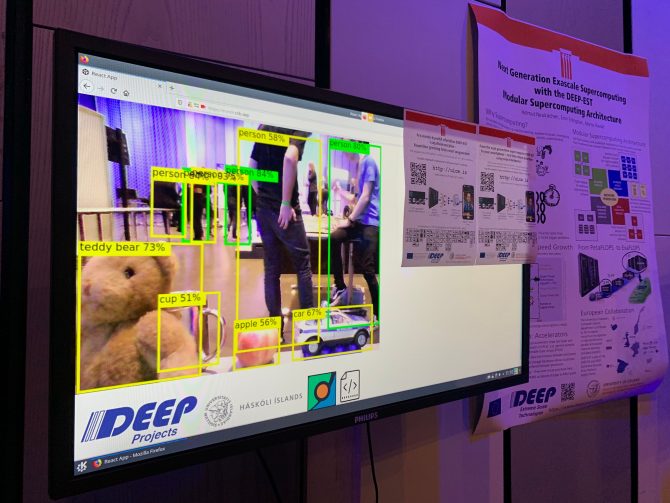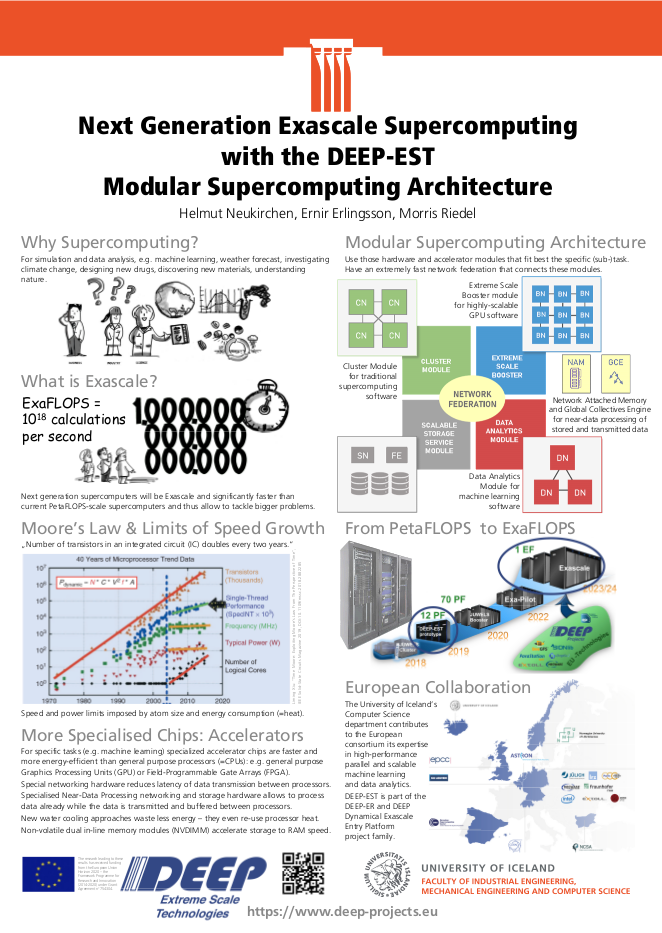First steps
When I was new to Raspberry Pi, I followed these German instructions.
Running Raspberry Pi on SD card and syslog wear
The default Raspberry Pi syslog logs to the normal files system, i.e. SD card (if not using USB).
In order to log to RAM and write it to file system only when needed, you can use Log2RAM either by adding it manually or to apt. Alternativly (did not try myself), use: Zram-config.
But you anyway might want to use USB storage instead of SD card.
Booting Raspberry Pi from USB
Raspberry Pi now supports booting from USB (having installed the latest firmware does not harm: I did this by booting Raspberry OS from SD card. Note that in contrast to Raspberry Pi <4, Raspberry Pi 4 stores the firmware actually in an EEPROM, not just as a file loaded at every boot from the FAT boot partition by the GPU firmware of Raspberry Pi <4). I then dd'ed the image from SD to USB mass storage.
Booting Ubuntu from USB
If you want to go for Ubuntu (not just beta as 64 bit Raspberry Pi OS, but available as stable 64 bit and support for ZFS), the following is relevant:
Ubuntu for Raspberry Pi uses U-Boot as bootloader, however U-Boot does not support booting from USB on Raspberry Pi, only from SD card, i.e. while Ubuntu 20.04 LTS works out of the box when booting from SD card, when I dd'ed the SD card onto a USB drive, booting failed because U-Boot could not load the kernel via USB.
Luckily, the bootloader that is part of the Raspberry Pi firmware can boot Ubuntu without U-Boot. As always, a FAT format boot partition is needed that contains a couple of files in order to boot.
While U-Boot can load compressed (vmlinuz) kernel images and can load the kernel from an ext4 root filesystem, the Raspberry Pi bootloader firmware can only load uncompressed (vmlinux) kernel images and only from the FAT-based boot filesystem.
While the Ubuntu 20.04 LTS ARM64 image has a kernel on the FAT-based boot partition, it is unfortunately compressed (because the assumed U-Boot would be able to deal with it). Hence, you need to uncompress the kernel manually to allow the Raspberry Pi firmware bootloader to load and start the kernel.
In addition, it seems that the .dat and .elf files that are part of the bootstraping need to be the most recent ones.
Hence, I downloaded the whole Raspberry Pi firmware from GitHub (via the green Code button) and extracted the .dat and .elf files from the boot directory.
Finally, you need to change the config.txt by adding kernel=vmlinux and
initramfs initrd.img followkernel[all] and comment-out [pi4].
That should be enough to boot Ubuntu from USB. My above steps are essentially based on https://eugenegrechko.com/blog/USB-Boot-Ubuntu-Server-20.04-on-Raspberry-Pi-4 where you find step-by-step instructions.
Note that when you do later a kernel update inside the booted Ubuntu, it might only update the kernel image in the ext4 root partition -- not in the FAT boot partition. In this case, you need to copy the kernel over. Also you need to decompress it again.
(It should be possible to automate this, to get an idea, see: https://krdesigns.com/articles/Boot-raspbian-ubuntu-20.04-official-from-SSD-without-microsd of https://medium.com/@zsmahi/make-ubuntu-server-20-04-boot-from-an-ssd-on-raspberry-pi-4-33f15c66acd4.)
If you want to use the system headless (in fact, connecting a keyboard did not produce any input in my case), you can configure the network settings via the FAT-based boot partition: https://ubuntu.com/tutorials/how-to-install-ubuntu-on-your-raspberry-pi#3-wifi-or-ethernet
ZFS
Work in progress...
The ultimate goal is to have two drives as ZFS mirrors (RAID1) connected via USB.
(Be aware: 1. if the USB adapter claims data to have been written, that it has in fact not yet written, ZFS may fail -- just like probably any journaling-based file system; 2. USB is not as stable as SATA, so an ODROID-HV4 or a Raspberry Pi 4 compute module with PCI-based SATA might be better, or a Helios64 which might in future even have ECC RAM. But at least, Raspberry Pi has the better ecosystem and ZFS has some memory debug flag that does checksums for its RAM buffers.)
While https://www.nasbeery.de/ has some very easy script to use ZFS, it still assumes an SD card for the boot and root filesystem. It would of course be better to have everything on the USB drive (and even using RAID).
As the Raspberry Pi bootloader can only access a FAT-based boot partition, we still need a FAT-based boot partition on the USB drive. According to documentation, if the first probed USB drive does not have a boot partition, the next drive will be probed. So, it should be possible to have some sort redundancy here (but we need manually take care that both FAT-based boot partitions are synced after each kernel update to have some sort of RAID1).
As Ubuntu should be able to have the root partition on ZFS (once the Raspberry Pi firmware bootloader loaded the kernel from the FAT-based boot partition), it should be possible to use ZFS as root partition (what size? 50GB?). The remainder could then be a ZFS data pool.
Note that if one of the RAID1 drives fails and needs to be replaced, the new drive might have slightly less sectors, so it is wise to use not all available space for the ZFS data pool. If we use anyway a swap partition in addition, we could use it to utilize the remaining space (and have then on the replacement drive a slightly smaller swap partition if the replacement drive is smaller). The swap partition should not be on ZFS but a raw swap partition: Linux can either use multiple swap partitions, i.e. from all of the RAID drives -- or only use one and keep the others unused.
This means, we still partition the mass storage instead of letting ZFS use it exclusively. The Raspberry Pi bootloader understand only MBR partition format -- this might limit drive size to 2 TB.
The following web pages cover ZFS as root:
Compiling ZFS for Raspberry Pi OS (first part), switching to ZFS root (second part), including initramfs and kernel cmdline.txt
https://github.com/jrcichra/rpi-zfs-root
https://www.reddit.com/r/zfs/comments/ekl4e1/ubuntu_with_zfs_on_raspberry_pi_4/
Update
I do not use any longer the Raspberry Pi for this, but trying now on PC hardware with Proxmox that comes with ZFS.
But currently, I have the problem that while BIOS and Linux detects the two SSDs, Proxmox complains that it can find only one.
- When booting with a USB key containing the Proxmox installer and the Crucial SSD disconnected and only the SanDisk SSD connected via the SATA to mSATA adapter, the USB key becomes /dev/sdb and the SanDisk is detected by Linux in dmesg as
ata1 (with Features: Dev-Sleep) and as /dev/sda, but Proxmox says that it cannot find a disk at all.
- When using the Crucial SSD on that mSATA port with the USB key and the SanDisk SSD not connected, Linux shows the Crucial SSD in dmesg as
ata1 (with Features: Trust Dev-Sleep) and as /dev/sda and Proxmox allows to select ZFS RAID0.
- When using the Crucial SSD on that mSATA port (ata1) and the SanDisk SSD on the SATA port (ata2) and boot with the USB key, Linux shows the Crucial SSD in dmesg as
ata1 (with Features: Trust Dev-Sleep) and as /dev/sda. Note that the Crucial SSD is by dmesg shown as 4096-byte physical blocks whereas the SanDisk SSD does not has this line, but says Preferred minimum I/O size 512 bytes whereas the Crucial SSD says Preferred minimum I/O size 4096 bytes and supports TCG Opal. Proxmox allows to select ZFS RAID0, but not RAID1 (=mirror). As in the above list item 1, Proxmox does not seem to like the SanDisk SSD. Notabaly, the SanDisk SSD (/dev/sdb) is shown at mountpoint /cdrom -- not sure why (but unmounting it did not really make Proxmox use it).
- Attaching the SanDisk SSD via SATA USB adapter makes Linux show it as
sdb (the Crucials SSD as usual as sda and the USB key as sdc). Still Proxmox does not like it.
- Note that the SMART info on the SanDisk SSD says
Unrecoverable ECC count (Count of unrecoverable ECC errors) 15 sectors (my guess it that this is the reason why Proxmox does not like it!)
- I added now a Samsung SSD in addition to the Crucial and now Proxmox is happy. The Samsung SSD is 500 GB only though. Buy a second Crucial MX500 2TB (CT2000MX500SSD)...
But now, Proxmox complains that the disks have not the same size (on command line, probably some --force/-f would be sufficient): "Warning: mirrored disks must have same size Please fix ZFS setup first".
But the trick is to install it in ZFS RAID 0 mode on the smaller disk only. (What does not work, i.e. still gives the above complaint is set the "hdsize" parameter during the installation).
Best practise: use for ZFS as drive reference: /dev/disk/by-id path
USB adapters
I used USB to SATA adapters with the ASMedia ASM1153E as these work with Raspberry Pi and UASP.
TODO:
When checking dmesg after connecting a USB drive, it did spit out some warning that could be ignored.
TODO: performance tuning
https://www.jeffgeerling.com/blog/2020/raspberry-pi-usb-boot-uasp-trim-and-performance
https://www.jeffgeerling.com/blog/2020/raspberry-pi-usb-boot-uasp-trim-and-performance
https://www.jeffgeerling.com/blog/2020/enabling-trim-on-external-ssd-on-raspberry-pi
However that made in fact everything slower (TODO: speed testing via hdparm, dd).



